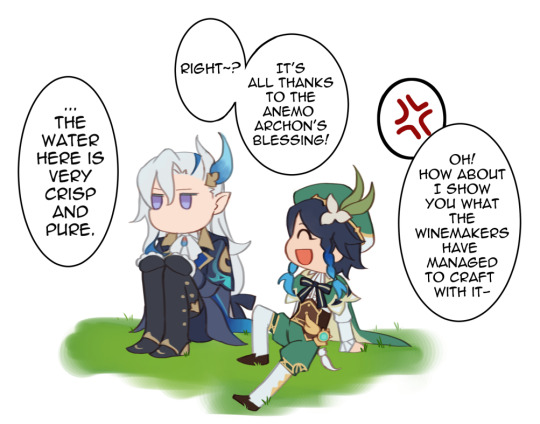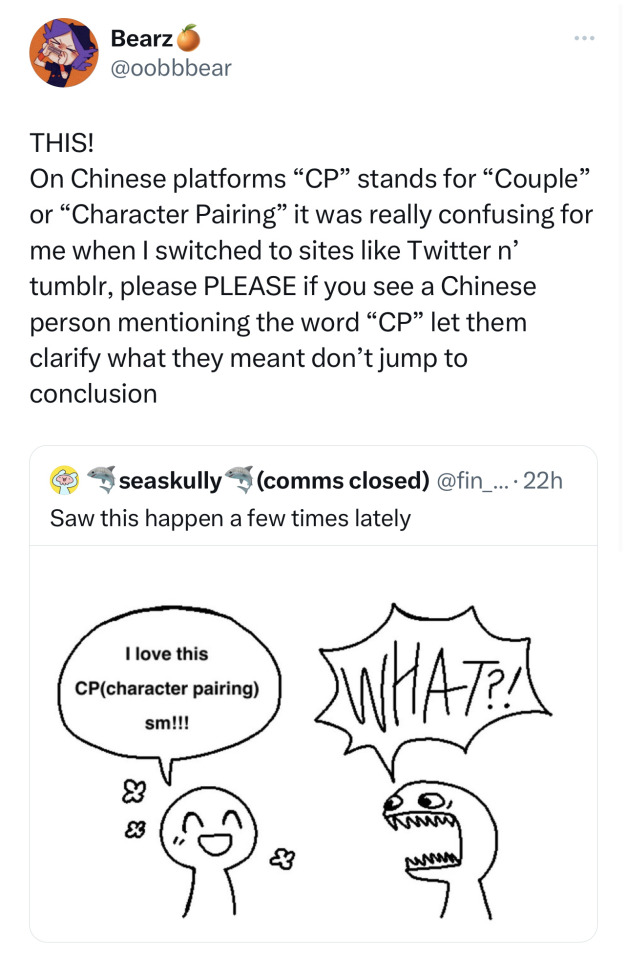#things can change
Text
The Conditions of Change
When adults seek change, they often focus on the intended result while hurrying through the practice. However, growth requires a bit more than 'just trying something out'. Here are some tips to help bring change upon your life, good luck!
Consistency
Real change, especially as an adult, requires many, many repetitions of a behavior or movement or position. 'Trying hard' is usually counterproductive as it tenses the muscles and the emotions. It is necessary to let the exercise or method work without undue ego participation over time. The practice has to become, for a time, 'just what one does.'
Willingness
The practices that change long standing blocks will usually seem, when presented to an adult learner, to be too subtle, too corny, not relevant, and mostly downright wrong. One must be willing to really try something different if one is at the point where one's own ideas have failed. Of course, discernment cannot be completely disposed of, but if a learner wants what another person has, they must be willing to do what that person did, however unnecessary or stupid it seems.
Sustainability
So often adult learners hurl themselves into an activity, and neglect other aspects of their lives. Soon they end up dropping the practice and rarely get back to it. A good practice must be one that can be 'what one does' for a good while. Immersion approaches exist, for example a 30 day retreat, but then carryover to one's regular life becomes the issue.
First Things First (Urgent Things Second)
In our over-busy, over-booked lives, if we wait for a 'free moment' to practice something, it invariably never arrives. To have consistency with a new practice it is necessary to make it a priority and see that it gets done first, leaving less important things, even if more urgent, to 'scroll off the screen'
The Plateau is Where the Work Starts
All people have latent abilities that come online easily and quickly when they start a practice (often called newbie or 'noob' gains). But once the latent abilities are developed and the participant is working to develop brand new capacities, the going is much much slower. This is where the large majority quit, discouraged, but this is where the work really is beginning.
Anticipate Anxiety
Real change even in small amounts will cause anxiety, which can be insidious and hard to attribute to the new practice. In an uncanny way, impulses to start something incompatible with the new practice, or new worries, confusion, or minor injuries will threaten to derail the change process. Barring gross demonstrable harm, the need is to 'stay the course!'
Don't Look to Validation or Approval
If another person is the reason to do something, in a moment they can become the reason not to. When a practice is undertaken to please someone (and yes this can be unconscious or semi-conscious) there are two big barriers: 1) effort gets substituted for the fruits of the practice, and the practice gets or stays sloppy because even sloppy practice shows effort, and 2) the instinct for autonomy (buried itself in some measure in the unconscious) will cause resistance
Frequent self-measurement is unhelpful
When one has undergone real change others will point it out, don't worry. Trying to get one's inner judge to validate oneself takes attention off the practice, apart from any concern that self-measurement will not be accurate.
The Placebo Effect is Not the Effect
Whenever one takes on a new promising practice there is going to be an immediate sense of elation. There is nothing wrong with enjoying this, but know that 1) it wears out in two to six weeks, 2) the real beneficial effect of the practice will be much more subtle at first then this elation, and take months or years to manifest. Many believe that when the elation stops, it means the practice has stopped working.
Understand the Difference Between Almost Nothing Happening and Actually Nothing Happening
When a ten-year-old wakes up in the morning no one notices a change in size from the night before, but actually there is, and over the course of years, that becomes very apparent. Real growth is like that, in that, almost nothing is happening. But with any practice, participants may worry that they are following a dead end. While some discernment and critical thinking may be needed in selecting a practice, once started attention should be focused on the actually practice, with some faith that results will come.
Work With Others
When working alone, long-standing defensive patterns can undermine the intended practice or even turn it into its opposite. Not that any growth practice is like an Olympic sport calling for perfect performance--one is simply seeking to stay in the 'stretch zone' or 'edge'. Other people, either peers or coaches can help with that by supplying explicit or implicit feedback. Not because they are know everything, but because they have gone or are going down the same path, and are more objective about you ('a different set of eyes').
Find Where You Are and Work From There
Don't try to work from where you want to be, that will be slower not quicker. This is about acceptance, a prerequisite for change
The Tightrope is an Illusion
When in new experiential territory, it can seem that the practice being encouraged will either quickly fall into a pitfall at one end, or into the opposite pitfall. There is no happy middle envisionable. This is just a lack of experience. For an experienced aerialist, the rope has come to appear like a sidewalk.
Don't Get Stuck in Inspiration
Inspiration, such as from most self-improvement materials and forums provides temporary elation by itself and therefore can become a habit. But nothing changes from inspiration. Slightly more important is turning inspiration into intention, definitely more important is turning intention into action, and absolutely more important is turning action into consistency.
There is No Such Thing as 'Ready'
Change is made by starting to work where you are with the tools at hand. In time, other tools will come to hand. The feeling of 'ready' does happen in life, but it has to do with situations already mastered. Also where aggression, anger, or desire is mobilized, the feeling of ready is not relevant.
Change is More About Unlearning than Learning
Here is what often happens: a man or woman wants to change a pattern so they focus directly on it and have initial success doing something different. Then they focus on other things, thinking the change is in the bag. The unwanted pattern comes back! The learner despairs that they cannot learn. Actually, the unwanted pattern was never gone (yet) it was just suppressed. It takes a longish trail of resuppression and practicing new habits until new practices become dominant.
Don't Make Effort the Focus
Many adolescent and adult learners have grown up in invalidating, emotionally treacherous environments where they could never be sure that their choices and criticisms wouldn't be attacked. This can lead to a over-emphasis of effort as a universally defensible good--remember the saying "You can't blame a guy for trying." But effort, increases arousal and tightens muscles, and strongly undermines some areas of change like breathing, relaxation, meditation, flexibility, and social skills. Of course with 'zero effort' nothing will change but effort should not be the focus.
Make Distractions and Irritants Part of the Practice
Everyone has had an experience of finding a quiet place, preparing to meditate or stretch, and BAM!, a loud sound like a leaf lower erupts. Or for nice guys they might have guilt at doing something 'selfish'. There is a temptation to wait to a better time, which often becomes never. Our ego fears we will do something badly! But the truth is, anything that cultivates growth will be done, at best, badly (really just imperfectly). Doing something even less perfectly is just as good, or greater an opportunity for self awareness as doing something just imperfectly. Awareness, attention, and mindfulness is increased.
The Rubber Band Effect
When we push against a homeostatic system, even one with a unhappy 'set-point', the system pushes back. To succeed, of course consistency and perseverance is necessary, but on occasion, several interventions need to be brought to bear simultaneously to reach a threshhold where the homeostatic set point is 'flipped', or reset.
#life#therapy#life advice#advice#life changing habits#things can change#changed#change#be the change#self growth#personal growth#personal development#self worth#self help#self esteem#self awareness#self improvement#self efficacy#believeinyourself#self development#self change#self healing#work in progress#tips and tricks#self evolution#self empowerment#i thought you should know
1K notes
·
View notes
Text

Reign 2013-2017/ 01-01 • 01×09
Toby Finn Regbo as Francis Valois
"I can not do this. I won't!" , "Things can change..."

O rosa delle rose, o rosa bella,
Per te non dormo nè notte nè giorno,
E sempre penso alla tua faccia bella,
Alle grazie che hai faccio ritorno.
Faccio ritorno alle grazie che hai:
Ch'io ti lasci, amor mio, non creder mai.
(Giuseppe Tigri, "Canti popolari toscani", Serenate, 1856)
#francis de valois#toby regbo#season1#01×01#01×09#parallels#mary stuart#adelaide kane#frary#mary×francis#reign#face expression#giuseppe tigri#canti popolari toscani#serenate#xix century#i can not do this i won't#i won't live you ever#things can change#love is irrilevant to people like us#marry me#take charge of your destiny#be my wife#just a boy#just a girl
17 notes
·
View notes
Text
To ensure that you're treating others with empathy and compassion:
1. Keep an open mind: When interacting with others, try to keep an open mind and be receptive to new ideas, perspectives, and experiences. By doing so, you can broaden your own worldview and develop a deeper appreciation for others.
2. Respect boundaries: Respect others' boundaries and sensitivities by establishing clear communication and healthy boundaries. This includes asking for consent when engaging in any physical or emotional intimacy, listening to others' concerns and needs, and being mindful of your own boundaries.
3. Recognize your own biases: Everyone has their own biases and prejudices, and recognizing them is the first step toward developing empathy and compassion. Try to reflect on your own beliefs and assumptions, and consider how they may impact your interactions with others.
4. Practice self-care: It's important to take care of yourself in order to be able to take care of others. Take breaks when needed, engage in self-care activities, and seek support from trusted friends or professionals when needed.
Treating others with empathy and compassion is a lifelong journey that requires effort, awareness, and a willingness to see the world from new and different perspectives. By following these steps, you can cultivate stronger relationships with others and contribute to a more compassionate and just world.
#be the change#personal development#self development#things can change#keep pushing#keep smiling#life advice#determination#advice#god#positive relationships#positive words#personal growth#very polite#the good place#self awareness#self help#self worth#self esteem#self growth#self healing#better man#self improvement
2 notes
·
View notes
Text
It's crazy how I used to wish I would die. Now I wish I have a long life. I'd do anything to stay alive.
1 note
·
View note
Text
“The world is changing every day; the only question is, who’s doing it?”
Babylon 5, “And the Rock Cried Out, No Hiding Place”
#'folks have been conned into thinking they can't change the world#have to accept what is.'#'[but] i'll tell you something'#i love this quote#feels rather pertinent today#there's always something that can be done#and we can do it!#we can!#things can change#and they will#they already are#slow as it may seem#babylon 5#reverend william dexter#what a show
2 notes
·
View notes
Text
so....
apparently the famous article “ghosts in the nursery” isn’t about a haunted nursery
who would have gussed?
[same for “angels in the nursery, BTW]
#psychology#nursery#ghosts in the nursery#its actually about trauma#trauma#about how a baby is cared by their parents#but also by how they were treated#the other is about how its not everything#things can change
2 notes
·
View notes
Text
the funniest meltdown ive ever had was in college when i got so overstimulated that i could Not speak, including over text. one of my friends was trying to talk me through it but i was solely using emojis because they were easier than trying to come up with words so he started using primarily emojis as well just to make things feel balanced. this was not the Most effective strategy... until. he tried to ask me "you okay?" but the way he chose to do that was by sending "👉🏼👌🏼❓" and i was so shocked by suddenly being asked if i was dtf that i was like WHAT???? WHAT DID YOU JUST SAY TO ME?????????? and thus was verbal again
#yeehaw#1k#5k#10k#posts that got cursed. blasted. im making these tag updates after... 19 hours?#also i have been told it should say speech loss bc nonverbal specifically refers to the permanent state. did not know that!#unfortunately i fear it is so far past containment that even if i edited it now it would do very little. but noted for future reference#edit 2: nvm enough ppl have come to rb it from me directly that i changed the wording a bit. hopefully this makes sense#also. in case anyone is curious. though i doubt anyone who is commenting these things will check the original tags#1) my friend did not do this on purpose in any way. it was not intended to distract me or to hit on me. im a lesbian hes a gay man. cmon now#he felt very bad about it afterwards. i thought it was hilarious but it was very embarrassed and apologetic#2) “why didn't he use 🫵🏼?” didn't exist yet. “why didn't he use 🆗?” dunno! we'd been using a lot of hand emojis. 👌🏼 is an ok sign#like it makes sense. it was just a silly mixup. also No i did not invent 👉🏼👌🏼 as a gesture meaning sex. do you live under a rock#3) nonspeaking episodes are a recurring thing in my life and have been since i was born. this is not a quirky one-time thing#it is a pervasive issue that is very frustrating to both myself and the people i am trying to communicate with. in which trying to speak is#extremely distressing and causes very genuine anguish. this post is not me making light of it it's just a funny thing that happened once#it's no different than if i post about a funny thing that happened in conjunction w a physical disability. it's just me talking abt my life#i don't mind character tags tho. those can be entertaining. i don't know what any of you are talking about#Except the ppl who have said this is pego/ryu or wang/xian. those people i understand and respect#if you use it as a writing prompt that's fine but send it to me. i want to see it#aaaand i think that's it. everyday im tempted to turn off rbs on it. it hasn't even been a week
144K notes
·
View notes
Text
I think we need to get more comfortable with the idea that sometimes shitty, racist, homophobic, bigoted people are still incredibly talented.
I feel like every time I see a post addressing someone’s shitty behavior the post also takes the time to mention that they’re not even good at [x] anyway. And that’s just not always true? Equating being good at a skill as being morally good is just not necessary. Someone can be a fantastic writer, can have a beautiful singing voice, can create breathtaking artwork, and still be a horrible person.
I know part of this is probably just the instinct to dislike everything about a person when you dislike them, but I also think this mindset leads to people defending creatives way past where they should, because if bad people create bad art, then if this person creates art that I like and resonates with me, then they can’t be a bad person!
And you know. That’s just not true. Those two things are simply completely unconnected and I think it’d be healthier if we all started disconnecting them in our heads.
#ramblings tag#like idk. I think it’s possible to feel distaste for someone’s stuff while acknowledging it’s objectively good#but sometimes people act like admitting there’s a single good thing about a person who’s been shitty is impossible#and like. no! people are multifaceted and can have many positives#those don’t change the fact that they’ve done shitty things
34K notes
·
View notes
Text
my top bit of advice going into the new year: compliment people. especially strangers. literally everyone you interact with if you can. when you buy coffee in the morning compliment the barista's tattoos. when you're chatting with a coworker tell them that by the way you like their outfit. always find something they've chosen to do on purpose. nail polish, jewellery, tattoos, hair colour/style, statement accessory, outfit, etc are all good bets. things people hope will be noticed. things that aren't too personal so it doesn't make them uncomfortable (eg probably not their physical features). i've gotten into the habit of scanning everyone i talk to for something about them that i think is cool so i can tell them. it's a great habit because it makes me notice people and realise just how many neat little details there are in people's presentation of themselves that might pass me by if i wasn't paying attention. and it brings out so much joy. you'd be surprised how much it disarms people to receive an unexpected compliment from someone they don't know. it is the most sincere smile you will see all day long. it feels nice to make people happy but it also means you win the social interaction. establish dominance by complimenting a stranger's earrings and disappearing into the fog
#rookposting#the little 'oh!' followed by a big grin is now my highlight in every interaction i have with a stranger#you can always spot the things people hope will be noticed and you have no idea how happy it makes people when it gets noticed#i find it's always better to compliment things they did deliberately vs complimenting stuff like their voice or their face or other things#that are inherent or they cant change because that can make people uncomfortable for one thing to hear that from a stranger#but it's also just less meaningful imo because they didnt do that on purpose
22K notes
·
View notes
Text
Of the 19 hijackers who carried out the Sept 11 attacks:
15 were from Saudi Arabia (a powerful/oil-rich country the U.S. works hard to maintain diplomatic relations with)
2 were from the United Arab Emirates (also a powerful/oil-rich country the U.S. works hard to maintain diplomatic relations with)
1 was from Egypt, 1 from Lebanon.
None of the hijackers were from Iraq.
None of the Sept 11 hijackers were Iraqi.
None of the 9/11 hijackers were from Iraq.
#9/11#serious post#not a shitpost#this should be one of the first things kids learn when they learn about the 9/11 attacks#politics#this is just...it's such an essential and brazen fact and i rarely see basic outrage over it#i want outrage. i want fury. i want disgust over the way fundamental facts are disguised and discarded and downplayed#because there are things we should KNOW. basic fact we should ALL KNOW. and they are tucked away in the footnotes.#and no this is NOT to put the blame on other middle eastern countries#we know this was carried out by a specific terrorist organization not a national government#but King George the Second decided (and was encouraged by his cabinet!) to invade a nation!#a nation that was not at all related or responsible!!!#a dictatorship to be sure--but a dictatorship that King George the First had been happy to support#so what changed? why did we go in guns blazing to DEMOLISH a country *we had NO PLANS OF REPAIRING*???#well. because they wanted a villain didn't they. a nice clean war. clarity of purpose. us the heroes against them the villains#and when you're in that mindframe--truth is irrelevant. you can pick your villain (your victim) by rolling a roulette wheel#truth is irrelevant#worse: to the people in charge#truth is a HINDRANCE#'Alternative facts' existed long before it became a catchphrase#facts don't matter. truth doesn't matter. the impulses of a handful of volatile & rich & power-high people--that's History. congratulations
32K notes
·
View notes
Text
Self-Responsibility
1. Take Responsibility to Prioritize Yourself
To take control of your life, you first have to feel worthy of a good life to make better decisions. Some people avoid taking responsibility for their lives because they have self-limiting beliefs. Thus, they may feel as though they don’t deserve better. Remember that it’s okay to be selfish sometimes. You can’t give love and support to others if you aren’t providing it for yourself. Prioritize yourself by practicing self-care and self-love activities. In loving yourself, you improve your confidence and understand that you have the final say in how you want your life to go. Self-love and self-care activities include: a five minute meditation, gardening, journaling, taking a hot bath, pampering yourself, and repeating positive daily affirmations.
2. Stop Playing the Blame Game
Although convenient, it’s a massive form of self-sabotage when we play the blame game. It’s usually relatively easy to point the finger and cast judgment towards others instead of looking at our actions. When we are hyper-focused on other people’s mistakes, we often miss learning many important lessons. People play the blame game for many reasons. You may be defensive when the light is shined on your wrongdoings. This can lead to you avoiding accountability which typically worsens the problem.
3. Make Time for Self Reflection
To take responsibility for your thoughts and actions, you need to become aware. Self-reflection allows you to develop more self-awareness. When you are mindful of your feelings, thoughts, and actions, you understand the patterns and logic behind the things that you do. With this information in mind, you can take stock of negative habits and replace them with good habits instead. To self-reflect, you should write your feelings and thoughts down in a mindfulness journal. As time passes, you can reread your journal entries and gain deeper insight into how you felt at the time, taking note of any patterns you may notice.
4. Take Accountability
Being responsible entails taking accountability. Some people love receiving praise but find difficulty in accepting responsibility when things don’t quite pan out. When you avoid taking blame or admitting that you were wrong, you don’t grow. Pride is a primary reason why some people have trouble taking accountability. However, this is usually to their detriment, leaving them to continue repeating the same mistakes over and over again. When we accept responsibility, we understand our part in a given situation. Much of how we are treated is dependent on how we treat ourselves. Hence, it’s vital to be honest with yourself when you’ve done something wrong instead of avoiding transparency and making excuses. Of course, you do not want to engage in self-pity or feelings of guilt. However, in being accountable, you can a more proactive approach by correcting poor behavior and making better decisions.
5. Don’t Internalize Judgment
Everyone has an opinion on something. However, you shouldn’t internalize other people’s judgments towards you. We are all unique in our way, having our perspectives on success and happiness. Though many of our loved ones have good intentions, it’s not rare for them to project their wishes onto us. For example, some parents may want their child to select a specific major, occupation, or even partner. You can’t live your life to appease someone else. You are responsible for living your own life.
Instead of internalizing judgments and opinions, make an extra effort to get to know yourself better. What do happiness and success look like to you? What are your standards when looking for a romantic partner? When we live true to ourselves, we live happier and more fulfilled lives. So, this will require you to be completely honest with yourself. You may even need to take some time away from people who constantly impose their views on you as this can create internal conflict, rendering decision-making a considerable challenge.
6. Practice Compassion Towards Yourself
Taking responsibility can be difficult because you understand that you control the direction you want your life to go. Upon coming to this realization, one can be a bit hard on themselves. Many of us are indeed our worst critics. When we judge ourselves harshly, we throw off our inner equilibrium. We feel ungrounded, unsupported, unsustainable, and very discouraged. As this persists, an individual can feel hopeless and even depressed—practice self-compassion. Instead reinforce positive self-talk, find humor in the situation. Don’t feel guilt and resentment, feel gratitude for learning the lesson. Instead of feeling as though you’ve wasted your time, find the wisdom in all that you’ve discovered about yourself. A mere shift in perspective is a potent action to take when you take responsibility for your life.
7. Be Mindful of Excuses
A common trait of irresponsible people is that they make or find an array of excuses. An irresponsible person who wants to eat healthier may say that they can’t because they don’t have time. However, if they are to be responsible, accountable, and honest, they would be able to sit down and figure out a way to make time. We can find many reasons not to make life changes. However, to allow these reasons to influence you not to make any change is when that reason becomes an excuse. And, at that moment, you’ve just given your power away. We all have the same 24 hours each day. How we choose to spend it is what we are all responsible for. And, this will show in the quality of life we have. So, stop making excuses for yourself.
8. Take Responsibility to Remove Toxic People
When it comes to making excuses, you may have others doing this for you. These people may want to spare you from your harsh judgment. However, this can be enabling you to continue unhealthy habits and toxic behavior. People who genuinely care for you and love you will hold you accountable because they want to see you achieve your dreams. Whereas, some individuals may want to keep you from reaching your goals as to keep you codependent on them. In such cases, these are not true friends.
To take responsibility for your life, you must also take responsibility for the people you keep in your life. People who frequently complain, self-loathe, self-deprecate, and speak down on your progress aren’t beneficial for your growth. They can stunt your progress. Make sure to keep healthy and supportive relationships. Also, you should seek to establish emotional independence to make better decisions from an objective stance and attract authentic people into your life
9. Eradicate Negative Self-Talk
To take responsibility, eradicate negative self-talk. Negative self-talk can come from childhood trauma inflicted by abuse within the household or bullying at school. These negative, self-limiting beliefs we have of ourselves usually originate from the projections and judgments other people throw at us. When we are younger, we tend to internalize these words, and they become ingrained in our minds. It takes time to un-condition such negative ideas about Self. However, it’s possible by doing activities aimed at self-love and self-care.
We come into this world with a very clean slate. As we grow, we begin to take on our personality. Much of this has to do with the environment we are socialized in. However, you do not have to be a product of your environment. You can take responsibility for your life and reclaim your full potential by utilizing the approaches mentioned above.
#self responsibility#self awareness#self improvement#self healing#self change#self control#self reflection#self help#self worth#life#self care#self growth#take control#life choices#life changing habits#things can change#be the change#motivateyourself#mindpower#mind over matter#i choose me#i choose to be happy#i choose peace#my life#i will do it#self respect#self development#self love#personal growth
25 notes
·
View notes
Text
I feel angry at this, like doing something, and I'm not even Russian.
#navalny#i have been seeing you for 2 years#how there are many good ppl#i want freedom and justice for all#i am an idealist#but it CAN translate to reality.#things can change#hope
0 notes
Text






The Hydro Sovereign comes to Mondstadt
#genshin impact#venti#neuvillette#furina#my art#I effing forgot to post this here I suck at this#yes I know the whole reborn as a human thing is exclusive to Neuvillette for some reason but what if dragons can change their form#and Neuvillette is the only loser who can't do it LMAO
12K notes
·
View notes
Text
I want to post this here too because I’ve seen it happen a few times

Please understand that there are cultural differences and language differences, if you see this happening let the person clarify what they meant, that person might just not be familiar with words the western side of the internet use
#bearz rambling tag#no it’s not really possible to let everyone who uses this term to change#because as far as I know this is the most common word with use on Chinese websites#I didn’t know that pairing are called ‘ship’ here#like why would I even know that#‘ship’ makes zero sense to me#it took me a while to learn the fandom language people speak here#it’s hard#give people time#shipping culture is very different too#Like on Chinese site you HAVE to clarify the Top and the Bottom of this ship in the ship name#it is very very important to them#people who like the same ship but with different Top Bottom preference will fight till no end#imagine how confused I was when I first got here#where there’s no top bottom differences#it’s not really a smut thing#it’s more a dynamic thing#AxB and BxA is very different#oh I can talk so much about the differences on fandom cultures#if ya are interested in more please feel free to ask#it’s very interesting to me#I wanna talk about it
8K notes
·
View notes
Text

ligament
#artists on tumblr#gonna be real i want to draw more raw things#but with the ever changing rules everywhere i have no idea what's allowed where#i want to draw b l o o d and bare bodies but where do i not get nuked for that#maybe i need to make a little separate side account somewhere#where i can be as unhinged as i want
4K notes
·
View notes
Text
we need to destroy the idea that girls should wear makeup. normalize bare faces on prom queens and flower girls and cheerleaders. no products at all instead of '7 product simple makeup routine.' no more 10 step skincare and regular facials and dermablading and gua sha just to be comfortable with yr natural face. i want to see eye bags on the funny librarian and acne on the swim coach and wrinkles on all our adult role models. i want to see a 16 year old girl that has never tried putting on eyeshadow. i want to see a 7 year old girl who doesn't have to go out and buy powder for her dance recital. i want to see trans women and girls everywhere to never have to wear makeup, regardless of how well they 'pass.' no more 'contouring to look masc' either. a post-beauty industry world is possible
reblogs are on but if you bring up the stage makeup point that i have addressed three times yr blocked on sight ☹️
#this is me warding myself against the b arbie m ovie shitstorm. </3#too many teenage girls have had 'bimbo feminist' thrust upon them by the attention economy + consumer-feminist culture#its ok to just be fucking lame. like you can still be fem/me and stuff while doing it#there is a world where you can feel comfortable in yrself even if you arent Aesthetic#the makeup industry is trying to hinder this tho#plus i saw that post thats like. 'the reason we see a lot of casual pseudo-gender-essentialist and choice feminism rhetoric...#... is because we have fewer posts now that have basic feminist messages'#that resonated so i am the change i want to see in the world#i wanna try and make a r iot g rrrl masterpost for anyone getting into that side of things later so lmk if you want to see it
20K notes
·
View notes